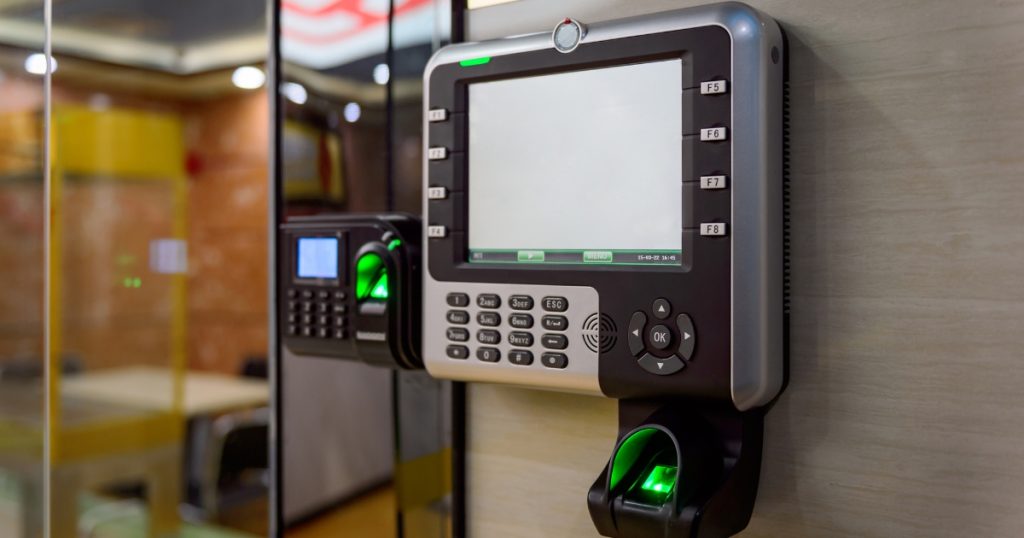Access control systems are essential for ensuring the security and safety of various premises, from commercial buildings to residential complexes.
The purpose of these systems is to regulate entry and exit points, preventing unauthorized access and providing authorized individuals with seamless access.
Choosing the right access control system can be a challenging process, but with the proper guidance, you can make a well-informed decision.
Understanding Access Control Systems
What is an Access Control System?
An access control system is a security solution that manages and monitors access to a particular area or building. It comprises hardware and software components designed to restrict unauthorized entry while granting access to authorized personnel. These systems play a crucial role in protecting sensitive information, valuable assets, and the overall safety of the people within the premises.
Types of Access Control Systems
There are various types of access control systems available in the market, each with its own set of features and benefits. Some of the most common types include:
- Discretionary Access Control (DAC)
- Mandatory Access Control (MAC)
- Role-Based Access Control (RBAC)
- Attribute-Based Access Control (ABAC)
Understanding the differences between these systems will help you determine which one best suits your requirements.
Factors to Consider When Choosing an Access Control System
Identify Your Security Needs
Before selecting an access control system, it’s crucial to identify your security needs. This will help you understand the level of security you require and the type of system that would best fulfil those needs. Consider the following questions:
- What are the potential threats to your property?
- What are the assets you need to protect?
- What are the entry and exit points that need to be secured?
- How many people require access to the premises?
- Are there any specific regulations or compliance requirements you need to adhere to?
By answering these questions, you’ll be better equipped to choose an access control system that aligns with your security objectives.
Evaluate System Features
Different access control systems offer varying features and functionalities. When choosing a system, consider the features that are most important for your security needs. Some key features to consider include:
- Authentication Methods: Access control systems use various authentication methods, such as key cards, PIN codes, biometrics, or a combination of these. Consider which method best suits your needs and provides the desired level of security.
- Integration Capabilities: Assess whether the access control system can integrate with other security systems, such as video surveillance or intrusion detection systems. Integration can enhance overall security and streamline management.
- Scalability: Choose a system that can grow with your needs. As your organization or property expands, you’ll want an access control system that can accommodate additional users, doors, and access points.
- Reporting and Monitoring: Evaluate the system’s reporting and monitoring capabilities. A comprehensive system should offer real-time monitoring, event logging, and customizable reporting to help you analyze and optimize security.
- Remote Access: Remote access allows you to manage and monitor the access control system from anywhere using a computer or mobile device. This feature can be invaluable for responding to security incidents or making adjustments to access permissions.
Consider the Total Cost of Ownership
When choosing an access control system, it’s essential to consider the total cost of ownership (TCO). This includes not only the initial purchase price but also installation, maintenance, and operational costs. Be sure to account for:
- Hardware and Software Costs: This includes the cost of access control panels, readers, credentials, software licenses, and any additional components required for the system.
- Installation Costs: Depending on the complexity of the system, installation costs can vary. Consult with a professional installer to get an accurate estimate.
- Maintenance and Support: Regular maintenance and support are crucial for ensuring the ongoing reliability and performance of the access control system. This may include software updates, hardware repairs, and technical support.
- Operational Costs: Consider any ongoing costs associated with managing the system, such as personnel training, credential management, and system administration.
By evaluating the TCO, you can make a more informed decision and select an access control system that fits within your budget.
Assess Ease of Use
An access control system should be user-friendly and easy to manage. This includes not only the interface for managing permissions and monitoring access but also the experience for end-users. Consider the following factors:
- User Interface: The system’s user interface should be intuitive and easy to navigate, allowing administrators to efficiently manage access permissions and monitor activity.
- Credential Management: Managing user credentials should be a straightforward process, with the ability to easily add, modify, or remove access permissions as needed.
- End-User Experience: Consider how easy it will be for authorized users to gain access using the chosen authentication method. The process should be seamless and minimally disruptive to their daily routine.
Regulatory Compliance
Depending on your industry or location, there may be specific regulatory requirements that your access control system must meet. Examples include data protection regulations, such as the General Data
Protection Regulation (GDPR) in the European Union, or industry-specific standards, such as the Health Insurance Portability and Accountability Act (HIPAA) for healthcare facilities in the United States. Ensure that the access control system you choose is compliant with any applicable regulations to avoid potential fines or legal complications.
Selecting an Access Control System Vendor
Reputation and Experience
When choosing an access control system vendor, consider their reputation and experience in the industry. A reputable vendor will have a proven track record of delivering high-quality systems and providing excellent customer support. Seek recommendations from peers or read online reviews to gain insights into the vendor’s reliability and performance.
Technical Support and Training
An essential factor to consider when choosing a vendor is the level of technical support and training they provide. A quality vendor should offer comprehensive support to help you with system installation, troubleshooting, and maintenance. Additionally, they should provide training for your staff to ensure they can effectively manage and operate the access control system.
Warranty and Service Level Agreements
Before committing to a vendor, inquire about their warranty and service level agreements (SLAs). A robust warranty will protect your investment, while SLAs ensure that the vendor will provide ongoing support and maintenance in line with agreed-upon standards. These factors can provide peace of mind and contribute to the long-term success of your access control system.
Conclusion
Choosing the right access control system is a critical decision that can significantly impact the security and safety of your property.
By carefully considering your security needs, evaluating system features, assessing the total cost of ownership, and selecting a reputable vendor, you can make a well-informed choice that meets your unique requirements.
Investing in a robust access control system will not only protect your assets and personnel but also contribute to a more secure and efficient environment.

